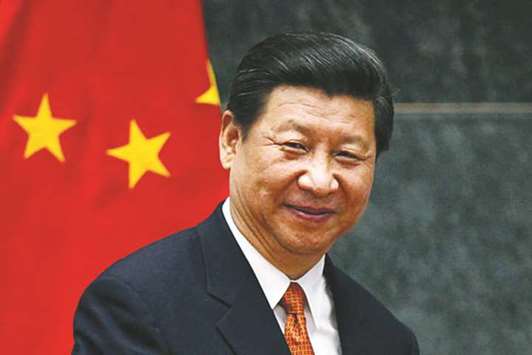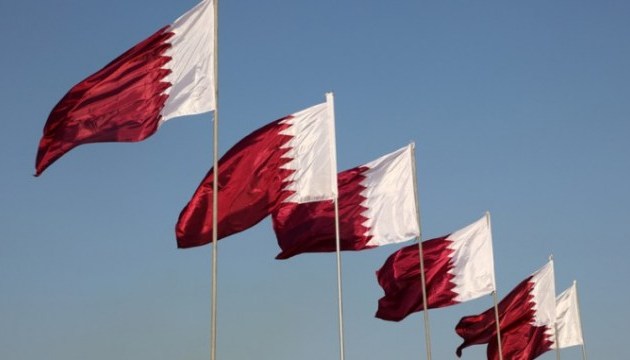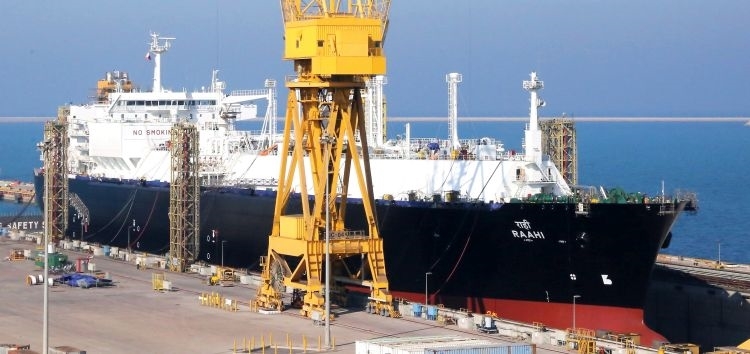Ras Laffan in Qatar is home to the world’s most productive LNG liquefaction complex, the world’s largest LNG carrier fleet and the world’s newest LNGC repair yard
Located within the Erhama Bin Jaber Al Jalahma Shipyard complex at Ras Laffan in northern Qatar, the joint venture Nakilat-Keppel Offshore & Marine Ltd (N-KOM) facility has successfully delivered in excess of 800 marine and offshore projects to date.
N-KOM has leveraged the extensive experience and technical know-how of its parent companies to become recognised as an expert in handling gas carriers and a variety of other vessels. The company offers a comprehensive range of repair, conversion, maintenance and fabrication services to the marine, offshore and onshore sectors, while its track record of safe, quality and timely deliveries has helped the facility win new and repeat business.
Cavalcade of LNGC repairs
The N-KOM shipyard has attracted numerous LNG carriers for routine docking and membrane tank repair and maintenance work so far in 2018. Among the LNG carriers repaired are vessels from Shipping Corporation of India (SCI), Maran Gas Maritime, Nakilat Shipping Qatar Ltd (NSQL), Teekay Shipping, Shell, MOL LNG Transport, K-Line Shipmanagement and NYK LNG Shipmanagement.
Most of these vessels underwent routine drydocking and repairs such as cargo tank inspections, overhauling of main engine cylinders, LNG cargo and spray pump servicing, general steel repairs, and hull treatment and painting. In addition, load tests for lifeboats and other related inspections have been carried out.
Evidence of the N-KOM yard’s popularity with LNG shipowners and managers can be seen in the fact that the facility has been fully booked for repairs in the months of July and August 2018.
“The growth of the LNG spot market has resulted in a significant increase in inquiries for repairs from LNG vessels that have not traditionally traded in the Middle East Gulf area”
N-KOM has two graving docks and one floating dock able to accommodate LNG carriers of up to the 266,000 m3 Q-max size, as well as an alongside berthing capacity of 3,150 m. Handling the complexities of repair work on sophisticated ships such as LNG carriers is facilitated by the yard’s well-equipped cryogenic cleanrooms.
N-KOM points out that the presence of prominent maritime service providers such as Gaztransport & Technigaz (GTT), Goltens, Wärtsilä, Wilhelmsen Ships Service, Turbo Technik and Cargotec operating within the shipyard helps smooth the overall repair process, offering convenience to shipowners and managers patronising the facility. In addition to its team of GTT-qualified membrane welders, N-KOM works with various specialist membrane repair contractors.
The growth of the LNG spot market has resulted in a significant increase in inquiries for repairs from LNG vessels that have not traditionally traded in the Middle East Gulf area. Given the reputation of the yard, in terms of experience, quality standards and the range of equipment and services available, vessel owners have been keen to book their ships at N-KOM as they align repositioning manoeuvres with routine ship maintenance requirements.
Earlier this year N-KOM received an award for the ‘Best Behavioural Safety Initiative’ during a safety workshop organised by Shell International Trading and Shipping Company Ltd (STASCO) for its contractors. The yard was lauded for deploying effective strategies and achieving successful measurable results, with a specific focus on safety and quality. N-KOM reports that the Shell award bears further testament to its commitment to high operating standards.
Ballast treatment
N-KOM continues to see interest in ballast water treatment system (BWTS) installations, and the yard has experience in handling such installation work for several vessels.
Understandably for large LNG carriers, the choice of BWTS is relatively limited. The focus is on those systems that can meet not only the ballast volume and flow requirements of the ship, but also the need to complete the necessary ballast treatment operations in line with their cargo-handling timescales.
On the plus side, LNG carriers have sufficient space and power available to enable the installation of a BWTS able to meet its needs. N-KOM cautions that the engineering of the retrofit process should be carefully planned and rehearsed before drydocking.
One of the challenges in this process involves optimising installation processes and the costs of manhours and materials. From interactions with ship operators, N-KOM observes that there have been delays on the part of owners in selecting the BWT systems, albeit with reasonable justifications.
The maturity of the technology, equipment approvals and regulations are the main three parameters that pose serious challenges to the operators. As such, adequate planning and preparation are highly recommended to facilitate the correct choice of BWTS in a timely manner.
N-KOM is able to observe the choices of shipowners to ensure compliance with the more stringent air emissions requirements coming into force, most notably the 0.5% global sulphur cap that becomes mandatory on 1 January 2020. The yard has noted that a number of owners with modern ships that still consume relatively large amounts of fuel, such as large tankers, are exploring exhaust gas scrubbers as one of the solutions.
N-KOM has already been booked for scrubber retrofits for a series of very large crude carriers belonging to a major Greek tanker operator. The yard expects that the remainder of 2018 and the whole of 2019 will be a busy time in terms of scrubber retrofits.
Nakilat’s expanding outreach
It has also been a year of significant developments at Qatar Gas Transport Co Ltd (Nakilat), the Qatari shipowning and marine services partner in the N-KOM operation. Established in 2004, Nakilat remains the essential transportation link in the supply chains developed to ensure the delivery of LNG exports from Ras Laffan to markets worldwide. The company’s outreach extends to more than 90 receiving terminals across 26 countries.

The 210,000 m3, 2009-built Al Sadd, one of the 31 Q-flex size LNG carriers in the Nakilat fleet
In March 2018 Nakilat expanded its joint venture partnership with the Greek shipping company Maran Ventures Inc to include two additional LNG carriers, boosting the number of vessels jointly owned by Nakilat and Maran Gas from 13 to 15 vessels.
Nakilat reports that strategic alliances with renowned partners have been fundamental to the company’s success. Furthermore, opportunities to grow its international presence in this manner, to capitalise on growing global energy demands, are under continuous review.
In this respect, Nakilat’s pursuance of a presence in the floating storage and regasification unit (FSRU) niche market achieved success in June 2018, when a landmark agreement was signed with Excelerate Energy of the US. The establishment of a joint venture company between the two parties gave Nakilat a 55% stake in one of Excelerate’s FSRUs – the first such vessel to join the Qatari shipowner’s fleet. Nakilat states that this deal marks the beginning of its growing involvement with the FSRU sector, with the promise of further outreach to developing LNG markets.
Nakilat now either fully or partly owns 65 LNG carriers, four large LPG carriers and one FSRU. NSQL, the company’s in-house ship management affiliate, now manages and operates 18 vessels, comprising the four LPG carriers, six Q-max size LNG carriers and eight Q-flex LNG carriers.
Nakilat’s 70-ship fleet includes 14 Q-max and 31 Q-flex LNG carriers, the world’s largest such vessels. The cargo-carrying capacity of the Nakilat LNGC fleet totals over 9M m3, making it the world’s largest such fleet, with about 12% of the overall capacity. The fleet transports more than 60% of Qatar’s LNG exports.
Qatar is reviewing a possible expansion of the LNG liquefaction capacity at Ras Laffan, from the current level of 77M tonnes per annum (mta) to 100 mta by the early 2020s.
Irrespective of that decision, Nakilat will continue to extend its outreach and LNG regasification, power generation and small-scale LNG are among the areas the company will continue to explore for possible opportunities to expand its business portfolio. However, should the project to expand Ras Laffan output to 100 mta get the green light, both N-KOM and Nakilat can look forward to a significant incremental jump in business activity.








